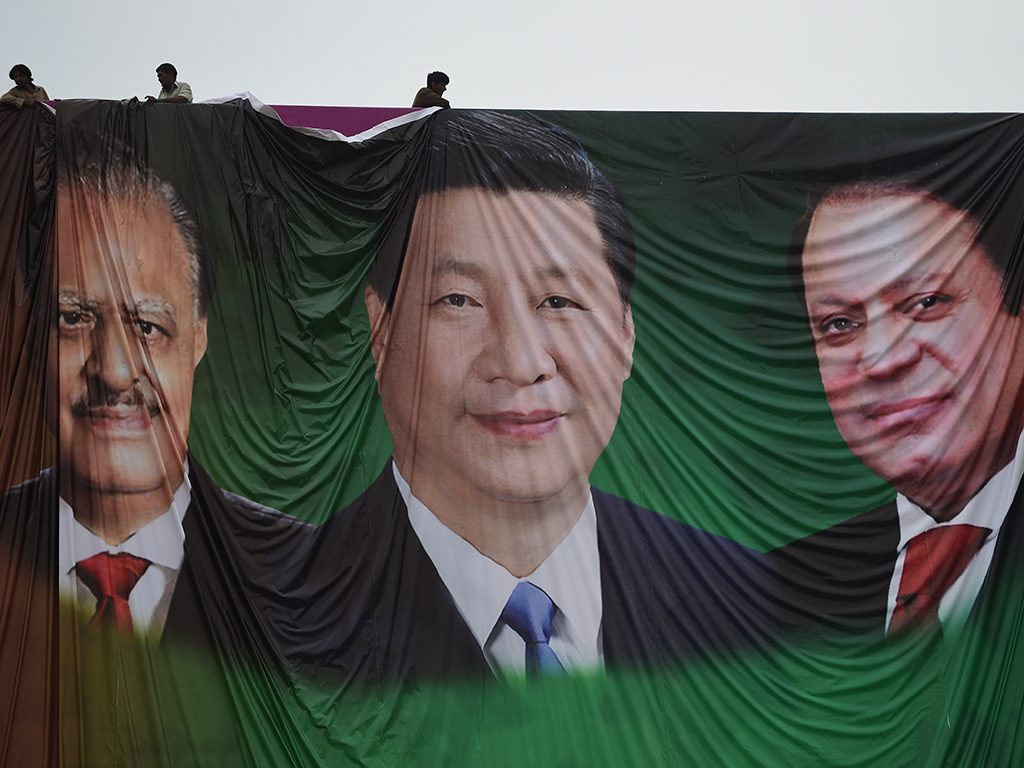China plans Silk Road to Pakistan
China will announce its $46bn investment in a super highway and economic corridor to Pakistan, linking the two countries closer than ever before

A welcoming billboard is put up for China, featuring President Xi Jinping, his Pakistani counterpart Mamnoon Hussain (l) and Prime Minister Nawaz Sharif. The countries hope the new economic pipeline being build with improve international relations and economic prospects
On April 20, premier Xi Jinping received a jovial welcome as he arrived in Islamabad; the trip marks the first visit by a Chinese leader to Pakistan in nine years. The celebratory reception can be attributed to China’s upcoming investment in the China-Pakistan Economic Corridor (CPEC), a $46bn project that will stretch 3,000km and consist of a network of roads and railways. The infrastructure project shall also entail oil and gas pipelines, as well as alternative power sources, in a bid to lift Pakistan out of energy poverty – which will in turn further boost the country’s economic growth.
[A]round 8,000 state officials will guard Chinese employees working at the various sites
The CPEC will be connected from the Xinjiang region in western China to the Gwadar port in southern Pakistan, running through the latter’s poorly developed Baluchistan province and Lahore. Stakeholders expect that the transportation links will raise the economic development of various areas in Pakistan, while also providing a vital passageway for Chinese export to the Middle East and Europe.
“For the first time, China is going to become a strategic economic partner of Pakistan,” Bloomberg reports Pakistan’s Planning Minister Ahsan Iqbal as saying during an interview on March 30. “Gwadar is the shortest link to Europe, Africa and Middle East,” making it, “a very attractive proposition for China and for its competitiveness.”
Given Pakistan’s history of instability and terrorist attacks, the security of the CPEC has been marked as a top priority for discussions. According to Pakistan’s Express Tribune, around 8,000 state officials will guard Chinese employees working at the various sites.
Chinese funding for the project will be the largest ever received by Pakistan, far surpassing that which it has been granted from another ally, the US. Despite this, Pakistan seeks to preserve its relations with the US, particularly in terms of security. Given that both nations, as well as China, benefit from a stable Pakistan, it is unlikely that increased competition will disrupt this vital partnership with the US.
China and Pakistan have long maintained positive relations, largely due to a common source of tension in the form of neighbouring India. The huge injection of investment and soon-to-be established transportation links will considerably prop up the link and the level of mutual support between the two states.
This latest move indicates how China’s network of power and allegiance continues to strengthen in Asia, gradually replacing the US in terms of presence within the region. Together with the formation of the Asian Infrastructure Investment Bank, it seems that China is indeed steadily rising to become the world’s new superpower.













